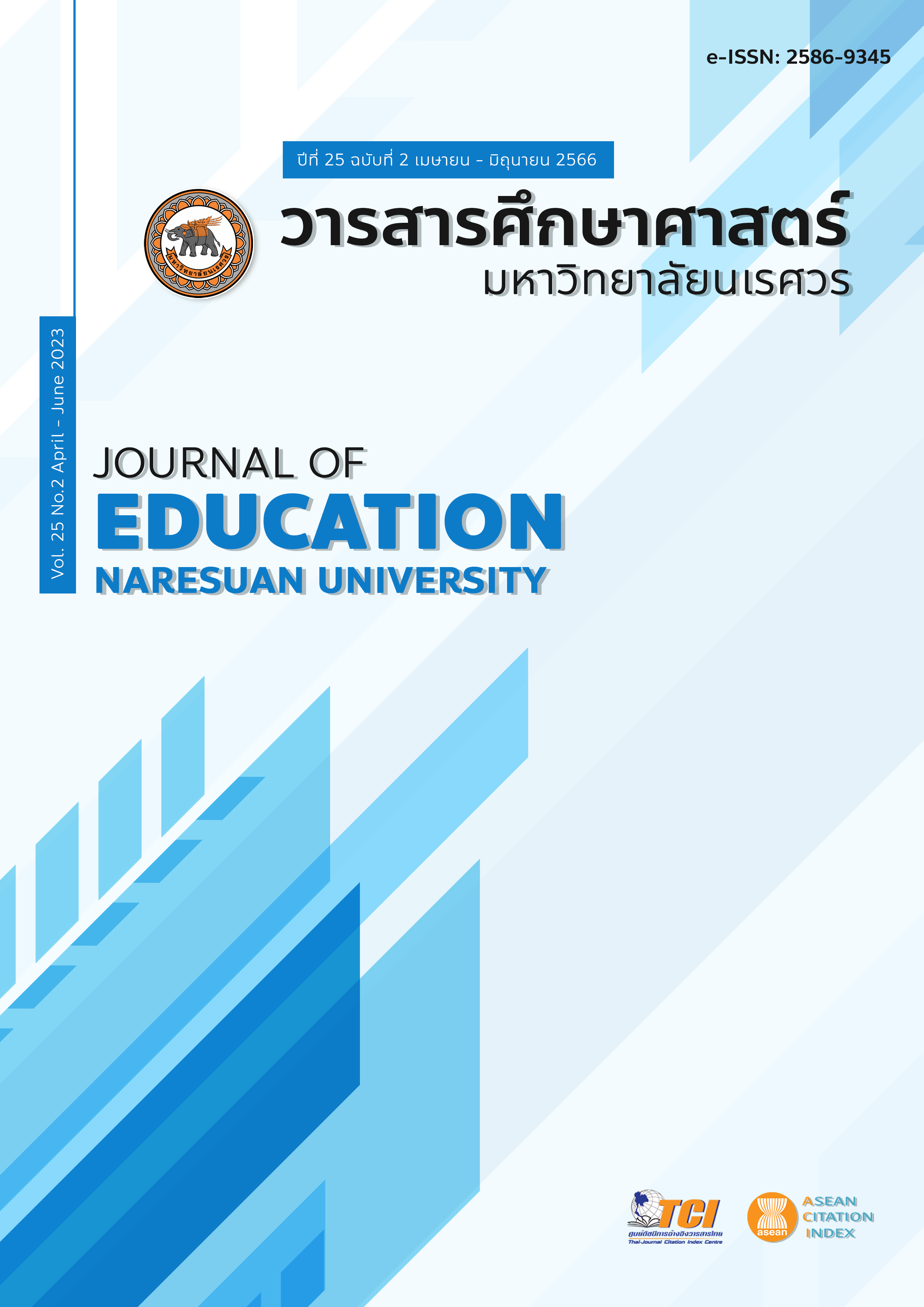THE EFFCCTS OF PHENOMENON - BASED LEARNING PROVISION ON HEALTH LITERACY FOR YOUNG CHILDREN ผลการจัดการเรียนรู้โดยใช้ปรากฏการณ์เป็นฐานที่มีต่อความฉลาดรู้ทางสุขภาวะสำหรับเด็กปฐมวัย
Main Article Content
Abstract
The purpose of this study was to study the effects of phenomenon-based learning provision on health literacy of young children. Health literacy of young children in 6th sides including access skill, cognitive skill, communication skill, self-management skill, decision skill, and media literacy skill. The samples of this study were 25 preschool children who were studying in Kindergarten. Received of phenomenon-based learning it took 10 weeks to collect the data. The research instruments were consisted phenomenon-based learning lesson plans which is adapted from the concept of Daehler and Folsom (2016), early childhood health literacy evaluation form and notes after the phenomenon-based learning activity provision was over. Data was analyzed by means, standard deviation, t-test (dependent) and content analysis. The results of the study showed that the children who received phenomenon-based learning provision had higher post-test health literacy scores than the pre-test. In addition, statistically significant at the level .05, the children had increased health literacy, including the skills of access, cognitive, communication, self – management, decision making, and media literacy.
Article Details

This work is licensed under a Creative Commons Attribution-NonCommercial-NoDerivatives 4.0 International License.
The owner of the article does not copy or violate any of its copyright. If any copyright infringement occurs or prosecution, in any case, the Editorial Board is not involved in all the rights to the owner of the article to be performed.
References
Butkatanyoo, O. (2018). Phenomenon-based learning for developing a learner’s holistic views and engaging in the real word. Journal of Education Studies, 46(2), 348 - 365. [in Thai]
Daehler, K. R., & Folsom, J. (2016). Making sense of science: phenomena-based learning. Retrieved December 10, 2020 from https://we-mss.weebly.com/uploads/8/6/4/9/8649828/ mss_pbl.pdf.
Funshean, N. (2019). PhenoBL The educational challenges of Finland. Retrieved February 2, 2021, from https://www.trueplookpanya.com/blog/content/75183
Madwungsang, S., Pinyoanuntapong, S., Pinyoanuntapong, B., & Boonthima, R. (2019). The study of health behavior promotion model of preschool children. Journal of Community Health Development, 5(1), 55-76. [in Thai]
Mahavijit, P. (2017). Learning innovation from Finland. The Institute for the Promotion of Teaching Science and Technology, 45(209), 40-45. [in Thai]
Mahavijit, P. (2019). Application of phenomenon-based learning and active learning in elementary education course to enhance 21st century learning skills. Journal of Education Khon Kaen University, 42(2), 73-90. [in Thai]
Bureau of Dental Health. (2018). Survey report National oral health conditions No.8 in Thailand. Retrieved September 5, 2020 from http://www.dent.chula.ac.th/upload/news/791/file_1_5834.pdf [in Thai]
Department of Disease Control. (2020). Report of the Coronavirus Disease Situation No. 236 August 26, 2020. Retrieved August 26, 2020 from https://ddc.moph.go.th/viralpneumonia/situation.php [in Thai]
Health Education Division. (2011). Health Literacy. Bangkok: Thammada Press. [in Thai]
Health Education Division. (2015). Development of health literacy measurement instrument for elementary students. Retrieved August 28, 2020, from http://hed.go.th/linkhed/file/274. [in Thai]
Office of the Basic Education Commission. (2019). Training report: Science Education for science and mathematically gifted learner The Normal Lyceum of Helsinki. Retrieved January 3, 2021, from
https://www.obec.go.th/wp-content/uploads/2019/06/Finland-81.pdf [in Thai]
Sajjasin, R. (2019). The effect of phenomenon-based learning experience provision through media simulation creation on the spatial ability for young children. Journal of Education Studies, 14(2), 111-124. [in Thai]
Samahito, C. (2020). Developing science and mathematics learning management competency of graduate students in early childhood education using phenomenon-based approach with e-earning media. Journal of Education Studies, 23(1), 104-115. [in Thai]
Silander, P. (2015). Phenomenon-based learning. Retrieved June 25, 2020, from http://www.phenomenaleducation.info/phenomenon-based-learning.html
Tachavijitjaru, C. (2018). Health literacy: A key indicator towards good health behavior and health outcomes. Journal of the Army Nurses, 19(Supplement), 1-11. [in Thai]
Thammanawa School. (2020). Self-assessment report 2020. Phra Nakhon Si Ayutthaya: Thammanawa School. [in Thai]
Viriya, P. (2018). Proposed instructional activity on world current events for senior high school student (Master Thesis). Bangkok: Silpakorn University. [in Thai]


